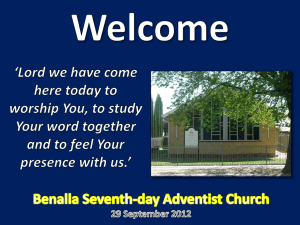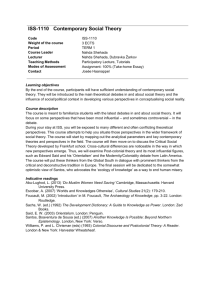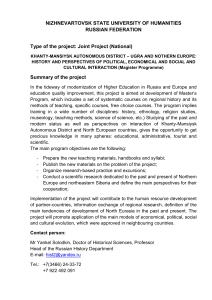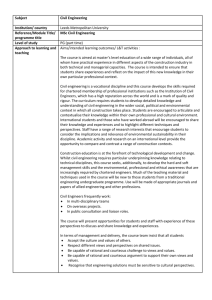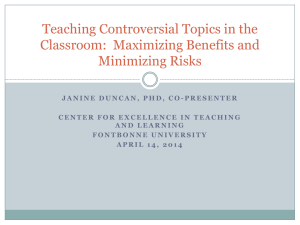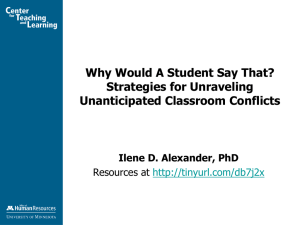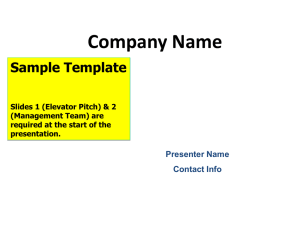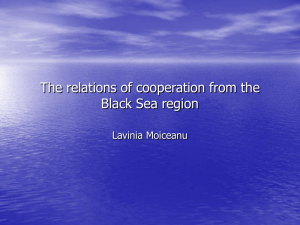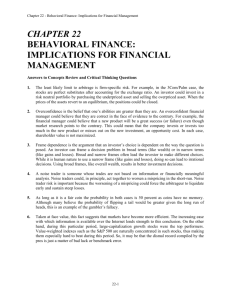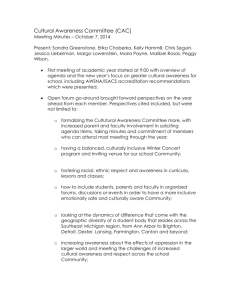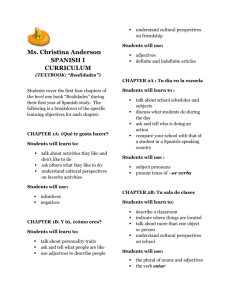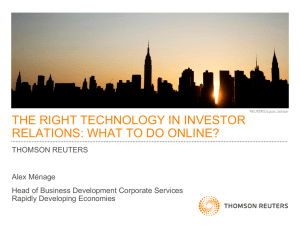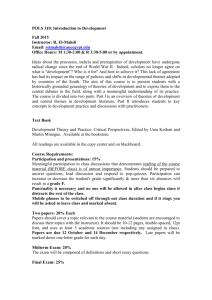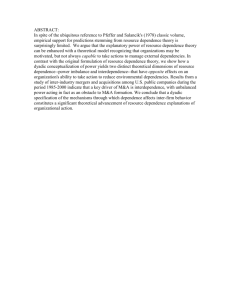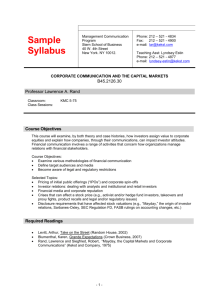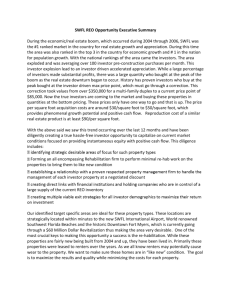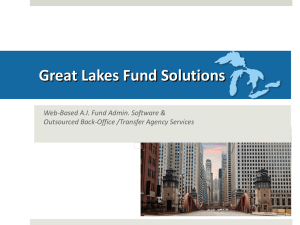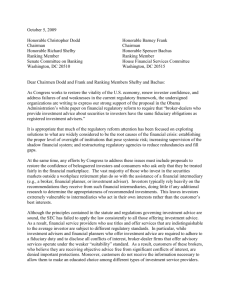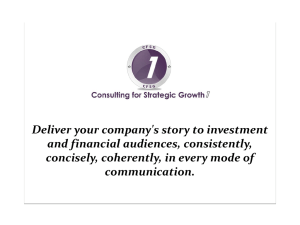10. Andreas Widegren – Family and Finance
advertisement
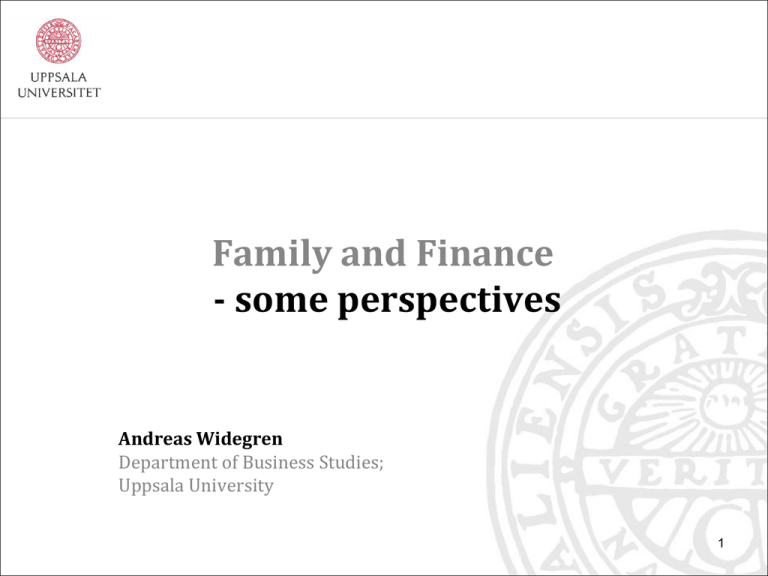
Family and Finance - some perspectives Andreas Widegren Department of Business Studies; Uppsala University 1 Disclaimer The contents and the views expressed during this presentation are my personal perspectives and do not reflect the views or policies of my current employer or any other organizations that I am affiliated with. 6-2 Andreas Widegren Current • Head of Section – Capital Markets Policy Strategy Swedish Ministry of Finance • PhD Candidate and Lecturer in Financial Accounting; Uppsala University. Capital Structure Focus. Background • MSc in Finance and International Business from Mannheim Business School and Stockholm Business School • Career in Investment Banking (UBS, Citigroup & Dresdner Bank) • Background in public family firm 3 Case • Company founded in 1974 • Three founding partners • Great expansion: – – – – Today represented in over 30 countries Both third party distribution and own manufacturing Around 1000 employees and € 250 million revenue Public since 2006 • Founding families control today about 35 percent • Over 35 members in owner families • Currently about 15 possible “heirs” 4 Problem • Trade off between continuity and growth – Growth requires capital – Continuity requires strength and unity • 35 wills impossible to coordinate – Different wants and needs – Who should take over? – Firm is seen as personal wallet, dependence • Financial discipline – Avoid a top heavy family run organization – Avoid “stupid cousin” phenomenon 5 Pecking order of finance • Family and friends • Bank • Private placement Capital Market Experience & Requirements • Equity Capital Markets • Debt Capital Markets 6 These issues were identified early on 7 Alternatives • Family run – – – – Difficult to distinguish between firm and family Economic dependence Very active in operations Bias perspectives, limited external input • Investor – Short term perspective – Traditional European view; IFRS created for investors – Not an active role 8 Alternative • Owner – – – – Trade-off between investors and family Stakeholder perspective Long term perspective Members not necessary operational (optional) • • • • Independence between firm and personal economy Choice to be investor or to leave Avoid dependence on certain individuals Faster adaptation to changing environment 9 Consequences • Fostered as owners – – – – Insight into the firm and product understanding Life independent of the firm Not expected to be operational or take over the “farm” Choice to exit or just be an investor • External CEO and at least 50 % of board – Reduces emotional decisions – External perspectives 10 END 11
